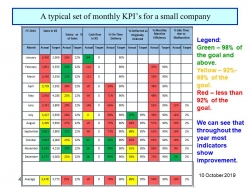In a discussion that I held with 30 managers at one of the companies, the subject of motivation arose, as always. I asked the participants what affects motivation. At this stage, people usually say "money, salary".
This time, perhaps because of the group's heterogeneity, or the participation of the CEO, all was quiet. After a few moments, Ortal quietly said, "Appreciation."
This was a refreshing change. You don't hear that evaluation every day.
The Hawthorne Effect
The issue of motivation receives a lot of attention in my blog. This time, I would like to refer to a major experiment known as The Hawthorne Study, conducted over 8 years, from 1927 to 1935, at the Hawthorne Works, Western Electric's largest plant, belonging to the Bell Telephone Group.
The experiment's objective, conducted with a team of researchers from Harvard University, was to assess what material working conditions might affect productivity. The findings surprised the researchers and led them to extend and expand their research right into 1935.
Findings showed that the longer the experiment, where a small group of female employees was isolated from the rest of the team, "the more they noted a steady increase in productivity and of positive feelings among female employees towards their work, with an improvement in their overall functioning (less absences, norms of helping one another, improvement in social relations, increase in morale, etc.) (Wikipedia).
Research findings were attributed to participation in the research and the considerate and open human relations expressed by the researchers.
In short, an elite unit. The five women became an elite team. So simple, so obvious, and still, even today, 80 years later, the experiment conclusions have not yet become public domain. And certainly not management domain.
Every employee is a boss in his/her home
At a large production site I managed in the past, they used to say that "every employee is a boss in his/her home". Because every one of us runs a "business" in his/her home. We have income, we have expenses and we have productivity and challenges to cope with on the way to attaining our goals.
In our home, we have responsibility, we have discipline and we attain admiration (at least, I hope so). When an employee comes to work and suddenly, from a significant individual, she becomes insignificant, a cog in the wheel, someone whose role is to perform certain repetitive functions just to fulfill instructions with no significance granted to her thinking, she loses interest in her work.
At that moment, all she focuses on is how to get through the day's work, and usually how to get by from break to break, although, with today's smartphones, one can simply escape into a Smartphone while still working, and life is now easier.
How can we expect motivation from an employee whose managers don't appreciate her and don't give her meaning?
At a small company, the CEO used to shout at and intimidate his employees in public. I asked him why, and he replied, "Because they disobeyed, they weren't doing the work right".
I asked him if he ever praised an employee who had performed well. He replied, "What for? He'd just be doing his job".
Appreciation, significance, responsibility
Appreciation. At one company, they began to issue letters of appreciation to employees on positive actions, effort, a good idea or willingness to make a special effort.
The employees who received these letters reacted emotionally, saying the letter was worth more than money. Despite the emotional responses, their managers still were not in full agreement that this was the right way to manage. Angry comments were made, such as "every time we ask our employees for something, they'll expect appreciation"...
And if so, so what? What does it cost us to give praise and to appreciate our employees? Remember Ortal? The woman at the beginning of this blog, to whom it was clear that appreciation builds motivation?
Significance. The employees in the experiment at Hawthorne Works were part of a selected group, like an elite unit. They had discipline. They had been selected – they were important. Therefore, their motivation was higher and, subsequently, their general functioning was high.
Responsibility: Why do senior managers work long hours and why do they feel such a sense of satisfaction? Besides their significance. They have responsibility. And responsibility grants them a feeling of satisfaction and belonging. In one of the companies I have managed in the past, there was an excellent technician who suddenly lost interest in his work. He spent entire days wandering around with his head in the clouds, not doing much of anything.
At a certain stage, I told his manager that if there wasn't any change soon, we would have to let him go. In a few days, an enormous change occurred in that same technician's behavior. He became a dedicated employee, happy and industrious.
It hadn't been my threat, as I doubt if he had even heard about it, but rather the responsibility he had been granted. His manager chose him to be in charge of a group of complex and vital packing machines. And the responsibility made him a happy man.
Conclusion and recommendation:
Don't ever forget that your employees are people, just like you. Just like you, it is important for them to receive praise. It's important for them to feel valued, and they are yearning to be granted responsibility.
Open your heart, and give them praise, significance and responsibility.
Thank you to:
Thanks to Anat Milner Cohen, who reminded me of the Hawthorne Effect in our last conversation. And of course, to Ortal, the purchasing manager at one of the companies, who reminded me that the simple truth can be found everywhere.












 My First Book: Manage! Best Value Practices for Effective Management
My First Book: Manage! Best Value Practices for Effective Management